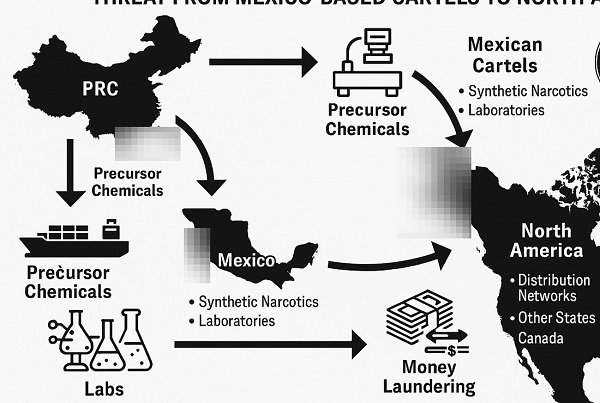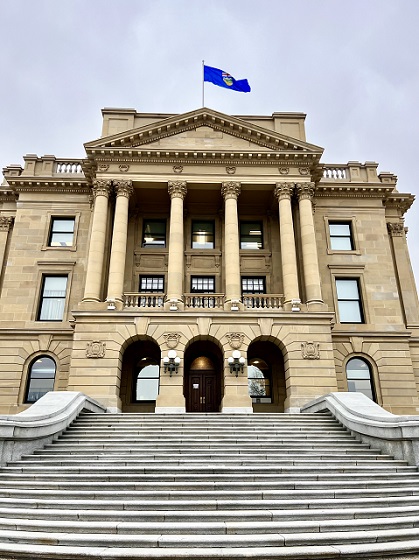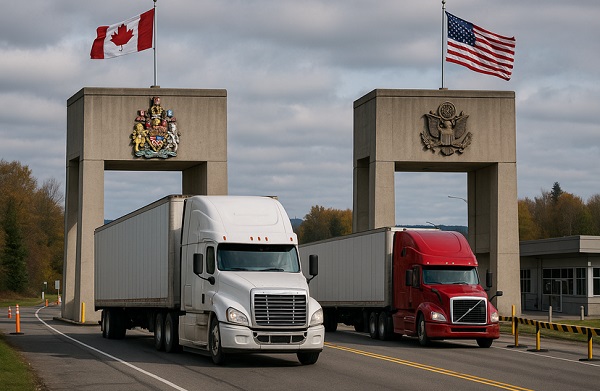Uncategorized
Putin sternly warns US against putting missiles in Europe

MOSCOW — Russian President Vladimir Putin sternly warned the United States against deploying new missiles in Europe, saying Wednesday that Russia will retaliate by fielding new weapons that will take just as little time to reach their targets.
While the Russian leader didn’t say what specific new weapons Moscow could deploy, his statement further raised the ante in tense relations with Washington.
Speaking in his state-of-the-nation address, Putin charged that the U.S. has abandoned a key arms control pact to free up its hands to build new missiles and tried to shift the blame for the move to Russia.
“Our American partners should have honestly said it instead of making unfounded accusations against Russia to justify their withdrawal from the treaty,” Putin said.
The U.S. has accused Russia of breaching the 1987 Intermediate-Range Nuclear Forces treaty by deploying a cruise missile that violates its limits — the accusations Moscow has rejected.
The INF treaty banned production, testing and deployment of land-based cruise and ballistic missiles with a range of 500 to 5,500
The intermediate-range weapons were seen as particularly destabilizing as they take shorter time to reach their targets compared to the intercontinental ballistic missiles. That would leave practically no time for decision-makers, raising the likelihood of a global nuclear conflict over a false launch warning.
Putin reaffirmed that Russia will not be the first to deploy new intermediate-range missiles but warned of a quick retaliation if the U.S. puts such weapons in Europe.
“They will only take 10-12 minutes to reach Moscow,” he said. “It’s a very serious threat to us, and we will have to respond.”
He didn’t directly mention the U.S., but noted that the Russian response will be “asymmetrical” and involve new weapons will reach the enemy’s decision-making
“Russia will be forced to create and deploy new types of weapons that could be used not only against the territories where a direct threat to us comes from, but also against the territories where decision-making
The president didn’t specify which of the prospective Russian weapons will do the job, but he reported a quick progress on an array of new weapons presented a year ago.
The Russian leader said the first batch of Avangard hypersonic glide vehicles will be deployed this year. Putin said the development of a vehicle that the military said is capable of flying 27 times faster than the speed of sound was a technological achievement comparable to the 1957 Soviet launch of the first satellite.
He added that the tests of the new Sarmat heavy intercontinental ballistic missile, the Burevestnik nuclear-powered cruise missile and the Poseidon nuclear-powered underwater drone have been progressing successfully.
Putin said the first submarine equipped to carry the Poseidon will be commissioned later this year. Shortly after Putin’s speech, the
Putin also announced the coming deployment of the new Zircon hypersonic missile for the Russian navy, saying it’s capable of flying at nine times the speed of sound and will have a range of 1,000
He said the Zircon program will not be too costly as the missile has been designed to equip Russia’s existing surface ships and submarines.
Putin added that the military will deploy more Kinzhal airborne hypersonic missiles, which entered service last year. The
Putin urged U.S. officials to take into account the “range and speed of our prospective weapons” before making decisions that will threaten Russia.
“We are only asking about one thing: Do the count first before making decisions that could create new serious threats against our country and would trigger retaliatory measures,” he said.
While issuing a tough warning to the U.S., Putin also claimed that Russia still wants friendly relations with Washington and remains open for arms control talks.
“We don’t want confrontation, particularly with such a global power as the U.S.,” he said.
At the same time, he criticized what he described as “destructive” U.S. policy of targeting Russia with sanctions.
Russia’s relations with the U.S. have sunk to post-Cold War lows over Russia’s 2014 annexation of Ukraine’s Crimean Peninsula, its support for the Syrian government in the war in Syria and the allegations of Russian meddling in the 2016 U.S. presidential election.
The menacing talk about new weapons and the tough warnings aimed at the U.S. followed a speech that mostly focused on domestic issues.
Putin promised Russians that he would raise welfare payments, improve education and the struggling health care system and remove toxic dump sites from cities. Similar goals have been set before, but the progress has been slow as Russia has been buffeted by economic shocks caused by a drop in oil prices and Western sanctions.
Vladimir Isachenkov, The Associated Press
Uncategorized
Poilievre on 2025 Election Interference – Carney sill hasn’t fired Liberal MP in Chinese election interference scandal

From Conservative Party Communications
“Yes. He must be disqualified. I find it incredible that Mark Carney would allow someone to run for his party that called for a Canadian citizen to be handed over to a foreign government on a bounty, a foreign government that would almost certainly execute that Canadian citizen.
“Think about that for a second. We have a Liberal MP saying that a Canadian citizen should be handed over to a foreign dictatorship to get a bounty so that that citizen could be murdered. And Mark Carney says he should stay on as a candidate. What does that say about whether Mark Carney would protect Canadians?
“Mark Carney is deeply conflicted. Just in November, he went to Beijing and secured a quarter-billion-dollar loan for his company from a state-owned Chinese bank. He’s deeply compromised, and he will never stand up for Canada against any foreign regime. It is another reason why Mr. Carney must show us all his assets, all the money he owes, all the money that his companies owe to foreign hostile regimes. And this story might not be entirely the story of the bounty, and a Liberal MP calling for a Canadian to be handed over for execution to a foreign government might not be something that the everyday Canadian can relate to because it’s so outrageous. But I ask you this, if Mark Carney would allow his Liberal MP to make a comment like this, when would he ever protect Canada or Canadians against foreign hostility?
“He has never put Canada first, and that’s why we cannot have a fourth Liberal term. After the Lost Liberal Decade, our country is a playground for foreign interference. Our economy is weaker than ever before. Our people more divided. We need a change to put Canada first with a new government that will stand up for the security and economy of our citizens and take back control of our destiny. Let’s bring it home.”
Uncategorized
Canada Needs A Real Plan To Compete Globally

From the Frontier Centre for Public Policy
Ottawa’s ideological policies have left Canada vulnerable. Strategic action is needed now
As Canada navigates an increasingly complex geopolitical landscape, the next federal government must move beyond reflexive anti—Americanism regardless of its political leanings. Instead, Canada should prioritize national interests while avoiding unnecessary conflict and subservience.
The notion that Canada can stand alone is as misguided as the idea that it is only an economic appendage of the United States. Both perspectives have influenced policy in Ottawa at different times, leading to mistakes.
Rather than engaging in futile name-calling or trade disputes, Canada must take strategic steps to reinforce its autonomy. This approach requires a pragmatic view rooted in Realpolitik—recognizing global realities, mitigating risks, governing for the whole country, and seizing opportunities while abandoning failed ideologies.
However, if Washington continues to pursue protectionist measures, Canada must find effective ways to counteract the weakened position Ottawa has placed the country in over the past decade.
One key strategy is diversifying trade relationships, notably by expanding economic ties with emerging markets such as India and Southeast Asia. This will require repairing Canada’s strained relationship with India and regaining political respect in China.
Unlike past Liberal trade missions, which often prioritized ideological talking points over substance, Canada must negotiate deals that protect domestic industries rather than turning summits into platforms for moral posturing.
A more effective approach would be strengthening partnerships with countries that value Canadian resources instead of vilifying them under misguided environmental policies. Expand LNG exports to Europe and Asia and leverage Canada’s critical minerals sector to establish reciprocal supply chains with non-Western economies, reducing economic reliance on the U.S.
Decades of complacency have left Canada vulnerable to American influence over its resource sector. Foreign-funded environmental groups have weakened domestic energy production, handing U.S. industries a strategic advantage. Ottawa must counter this by ensuring Canadian energy is developed at home rather than allowing suppressed domestic production to benefit foreign competitors.
Likewise, a robust industrial policy—prioritizing mining, manufacturing, and agricultural resilience—could reduce dependence on U.S. and Chinese imports. This does not mean adopting European-style subsidies but rather eliminating excessive regulations that make Canadian businesses uncompetitive, including costly domestic carbon tariffs.
Another key vulnerability is Canada’s growing military dependence on the U.S. through NORAD and NATO. While alliances are essential, decades of underfunding and neglect have turned the Canadian Armed Forces into little more than a symbolic force. Canada must learn self-reliance and commit to serious investment in defence.
Increasing defence spending—not to meet NATO targets but to build deterrence—is essential. Ottawa must reform its outdated procurement processes and develop a domestic defence manufacturing base, reducing reliance on foreign arms deals.
Canada’s vast Arctic is also at risk. Without continued investment in northern sovereignty, Ottawa may find itself locked out of its own backyard by more assertive global powers.
For too long, Canada has relied on an economic model that prioritizes federal redistribution over wealth creation and productivity. A competitive tax regime—one that attracts investment instead of punishing success—is essential.
A capital gains tax hike might satisfy activists in Toronto, but it does little to attract investments and encourage economic growth. Likewise, Ottawa must abandon ideological green policies that threaten agri-food production, whether by overregulating farmers or ranchers. At the same time, it must address inefficiencies in supply management once and for all. Canada must be able to feed a growing world without unnecessary bureaucratic obstacles.
Ottawa must also create an environment where businesses can innovate and grow without excessive regulatory burdens. This includes eliminating interprovincial trade barriers that stifle commerce.
Similarly, Canada’s tech sector, long hindered by predatory regulations, should be freed from excessive government interference. Instead of suffocating innovation with compliance mandates, Ottawa should focus on deregulation while implementing stronger security measures for foreign tech firms operating in Canada.
Perhaps Ottawa’s greatest mistake is its knee-jerk reactions to American policies, made without a coherent long-term strategy. Performative trade disputes with Washington and symbolic grandstanding in multilateral organizations do little to advance Canada’s interests.
Instead of reacting emotionally, Canada must take proactive steps to secure its economic, resource, and defence future. That is the role of a responsible government.
History’s best strategists understood that one should never fight an opponent’s war but instead dictate the terms of engagement. Canada’s future does not depend on reacting to Washington’s policies—these are calculated strategies, not whims. Instead, Canada’s success will be determined by its ability to act in the interests of citizens in all regions of the country, and seeing the world as it is rather than how ideological narratives wish it to be.
Marco Navarro-Génie is the vice president of research at the Frontier Centre for Public Policy. With Barry Cooper, he is co-author of Canada’s COVID: The Story of a Pandemic Moral Panic (2023).
-

 Alberta1 day ago
Alberta1 day agoWhy Some Albertans Say Separation Is the Only Way
-
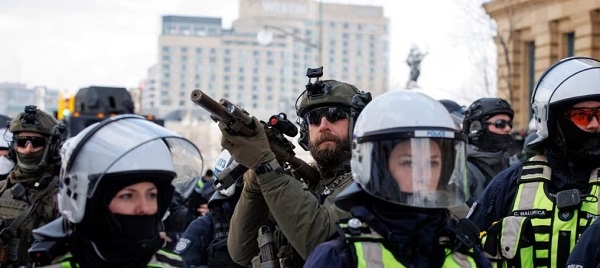
 espionage2 days ago
espionage2 days agoCanada’s Missing Intelligence Command: Convoy Review Takes on New Relevance After FBI Warnings
-

 National18 hours ago
National18 hours agoThe State of Confederation: Provinces are pushing back against federal overreach
-
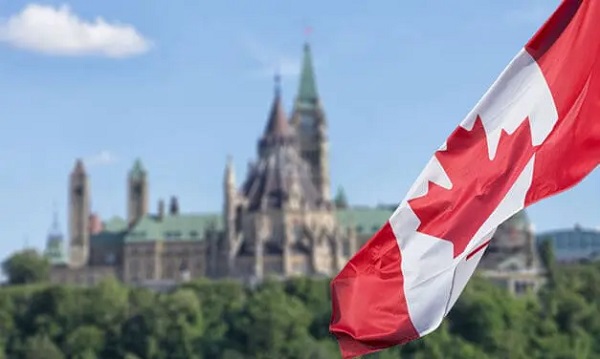
 Business2 days ago
Business2 days agoRegulatory reform key to Canada’s energy future
-
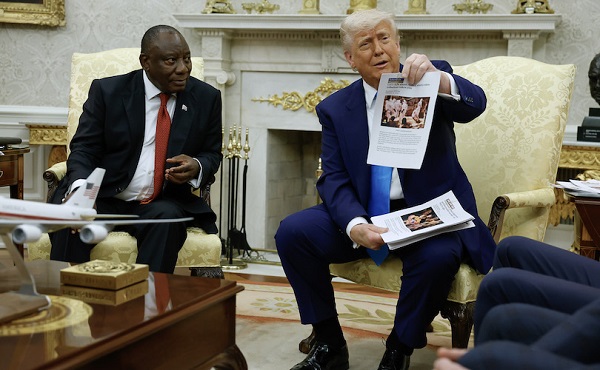
 International17 hours ago
International17 hours agoTrump confronts South African president about widespread killing of White farmers in the country
-

 Business1 day ago
Business1 day agoMounting evidence suggests emissions cap will harm Canadians
-
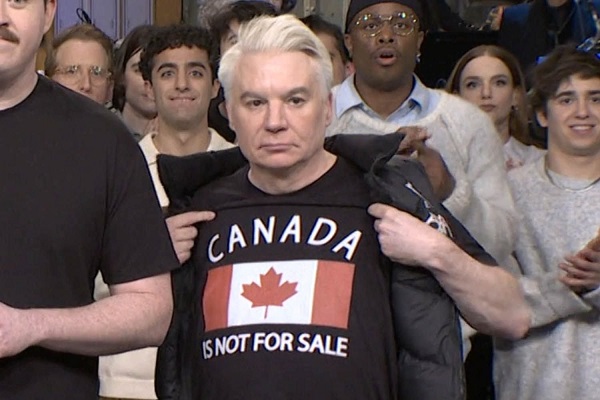
 Bruce Dowbiggin17 hours ago
Bruce Dowbiggin17 hours agoU.S. Voters Smelled A Rat But Canadian Voters Bought The Scam
-

 Business1 day ago
Business1 day agoNew fiscal approach necessary to reduce Ottawa’s mountain of debt


